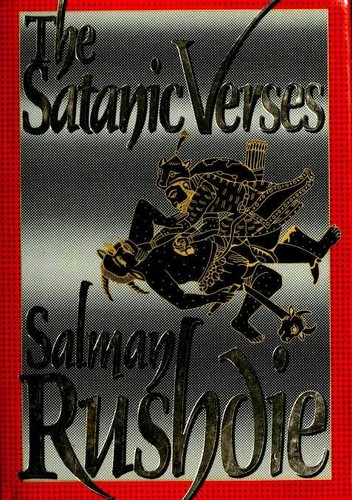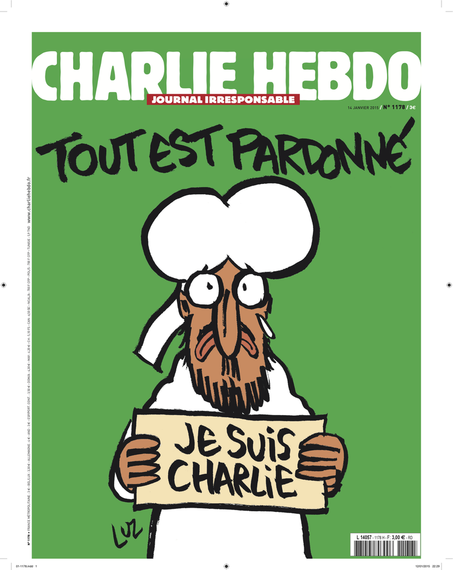The August 12 assault on Salman Rushdie was almost certainly prompted by his “blasphemy.” In 1989, the Ayatollah Khomeini took a dislike to Rushdie’s The Satanic Verses, called it blasphemy, and put a bounty on Rushdie and his publishers. Rushdie went into hiding for years, the book’s Japanese translator was murdered, and the Italian translator was stabbed. 
Writing about controversial subjects has always attracted anger and violence, and religion is one of the most controversial. Many governments with state religions have imposed severe penalties for blasphemy. Leviticus 24:16 says, “And he that blasphemeth the name of the Lord, he shall surely be put to death, and all the congregation shall certainly stone him: as well the stranger, as he that is born in the land, when he blasphemeth the name of the Lord, shall be put to death.” The most famous blasphemy execution in history was the one of Jesus of Nazareth. For his part, Jesus said that blasphemy against the Holy Spirit is the one unforgivable sin.
In modern times, several countries, mostly Muslim, have laws against blasphemy, sometimes carrying the death penalty. In Pakistan, mobs have murdered alleged blasphemers. Even the supposedly civilized country of Austria has a blasphemy law, and several people have been convicted under it. The European Court of “Human Rights” says that such laws are fine. So much for freedom of religion. Germany has a law that can get someone who “through dissemination of written materials (section 11(3)) defames the religion or ideology of others” locked up for three years.
Heresy and blasphemy are distinct; heresy is merely a view that contradicts established doctrine. When authorities order severe punishments for heresy, though, the difference fades. A heresy which merits death or imprisonment must be one that insults God, not just a technical disagreement.
Let’s take a look at some noteworthy accusations of blasphemy against writers through history. What was their offense, and what happened to them?
The 14th-century theologian John Wycliffe challenged some doctrines of the Catholic Church, including transubstantiation. Pope Gregory XI censured him for his On Civil Dominion, and he was under house arrest for a time. He had broad support, saving him from serious punishment, but after his death his remains were dug up, burned, and scattered into the River Swift.
Jan Hus, an early proponent of reform in the Catholic Church, wrote in opposition to the selling of indulgences (“get out of Purgatory” tickets) and inspired later reformers such as Martin Luther. In 1415 he was tried for heresy and burned at the stake.
Michael Servetus wrote against the idea of the Holy Trinity, promoting the Unitarian idea. He was convicted of heresy in burned alive in 1553.
Massachusetts put Abner Kneeland in prison for sixty days for publishing “blasphemous” letters promoting a pantheistic philosophy. The Massachusetts blasphemy law is still on the books, though that seems to be the last time it was enforced. The court claimed that if disputing Christianity were allowed, then “all incitation to treason, assassination, and all other crimes however atrocious, if conveyed in printed language, would be dispunishable.” People might even be allowed to shout fire in a burning theater!
In 1887, Charles B. Reynolds published a pamphlet called “Blasphemy and the Bible.” He was charged with violating New Jersey’s blasphemy law. Robert Ingersoll defended him, but he was convicted and fined.
In 1922, a New Zealand publisher was tried for “blasphemous libel.” The author of the offending work was the poet Siegfried Sassoon, and the work was his short poem: “Stand To: Good Friday Morning.” The offending lines seem to be:
O Jesus, send me a wound to-day,
And I’ll believe in Your bread and wine,
And get my bloody old sins washed white!
The verdict was “We find the prisoner not guilty, but wish to add the following rider: That similar publications of such literature be discouraged.” This was supposedly the only blasphemy trial in New Zealand’s history. Given the timing, shortly after the end of World War I, I suspect the issue was really blasphemy against the warfare state.
Russia’s blasphemy law has had a major chilling effect on journalism. Media organizations have told their journalists not to write about religious issues or use the word “God” or “Allah.” People have been prosecuted and publications legally suppressed under the law.
In 2012, Saudi Arabia sentenced blogger Raif Badawi to a thousand lashes for “insulting Islam.” The sentence, which doubtless would have killed him, was never carried out in full, but he wasn’t released from prison until 2022.
Fantasy books and games are popular targets for blasphemy accusations. When Dungeons & Dragons became popular in the eighties, religious fanatics denounced the rulebooks with such claims as “The game is an occult tool that opens up young people to influence or possession by demons.” In early 2022, a pastor held a book-burning that included Harry Potter and Twilight books. “Stop allowing demonic influences into your home,” Greg Locke declared on Facebook.
 In January 2015, gunmen murdered twelve employees of the French satirical publication Charlie Hebdo because they deemed some of its cartoons blasphemous. “Doonesbury” cartoonist Garry Trudeau subsequently denounced the murder victims for “punching down.”
In January 2015, gunmen murdered twelve employees of the French satirical publication Charlie Hebdo because they deemed some of its cartoons blasphemous. “Doonesbury” cartoonist Garry Trudeau subsequently denounced the murder victims for “punching down.”
The report “Violating Rights: Enforcing the World’s Blasphemy Laws” from the United States Commission on International Religious Freedom gives a good summary of the state of blasphemy laws as of 2018. It reports that at that time, 84 countries had criminal blasphemy laws, and 41 of them had enforced them since 2014.
Challenging official truths is always dangerous, and challenging religious ideas is especially risky. The supporters of articles of faith sometimes resort to brute force because that’s the only argument they have. The freedom we have today to disagree with any religious view is a gift from people who endured anything from fines to being burned alive. Today’s writers need to keep their legacy going.
If this post has you in the mood for some nice blasphemous literature, please take a look at my The Magic Battery and Spells of War.